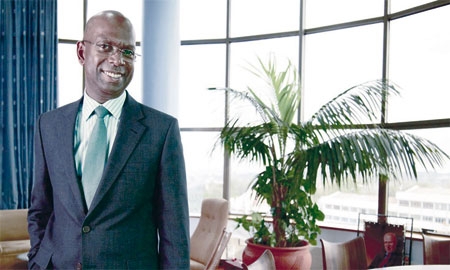Kenya and the UK’s most successful joint venture, Safaricom currently boasts an astounding 78 per cent share of the Kenyan mobile phone market. Established in 2000 as part of the liberalisation of the telecoms sector and now firmly entrenched in Kenya’s hearts and daily lives, Safaricom was the result of the partnership between global leader Vodafone and Kenyan state operator Telkom Kenya.
Now serving between 16 million and 17 million subscribers, Safaricom has been instrumental in introducing new innovative products that have helped advance national development, in particular in Kenya’s rural communities. The mobile company’s M-Kesho product, launched last spring in collaboration with the country’s Equity Bank, generated 700,000 new accounts for the bank in its first three months of operation.
A full telephone banking service that can be used to make delayed payments in the same fashion as a credit card, M-Kesho works in tandem with Safaricom’s M-Pesa platform, a first-of-its kind mobile transfer solution that enables customers to transfer or withdraw money, pay bills and buy goods. It can also be used for international money transfers.
The M-Pesa platform, which Vodafone is now planning to roll out internationally, has become so popular that Safaricom has been registering 158 per cent year-on-year growth in the product. Indeed, some commercial establishments in the country are beginning to insist on M-Pesa payments over cash, says Safaricom CEO Bob Collymore.
“People always talk about M-Pesa as being a competitor to the banking industry but it is not; it is a competitor to the cash industry, because everything you can do with cash, you can do with M-Pesa. The possibilities are tremendous. For example, there are some bars that now only accept M-Pesa because on a Friday night too much cash could make them a target for robbery,” he says.
“We have moved onto a platform that is capable of dealing with larger volumes and we will now open the floodgates. We already have 400 corporations that accept M-Pesa and that number could one day be 4,000 so there is a huge potential for growth in this area.”
Safaricom also foresees significant growth in data transfer. Last year, the company launched its Kipokezi service that allows subscribers to send and receive email and conduct online chat with the simplest of devices. This was added to a broad range of existing services including 3G, WiMAX and an ever-expanding fibre-optic cable footprint. Safaricom generated £128 million in net profits in 2010.

0 COMMENTS